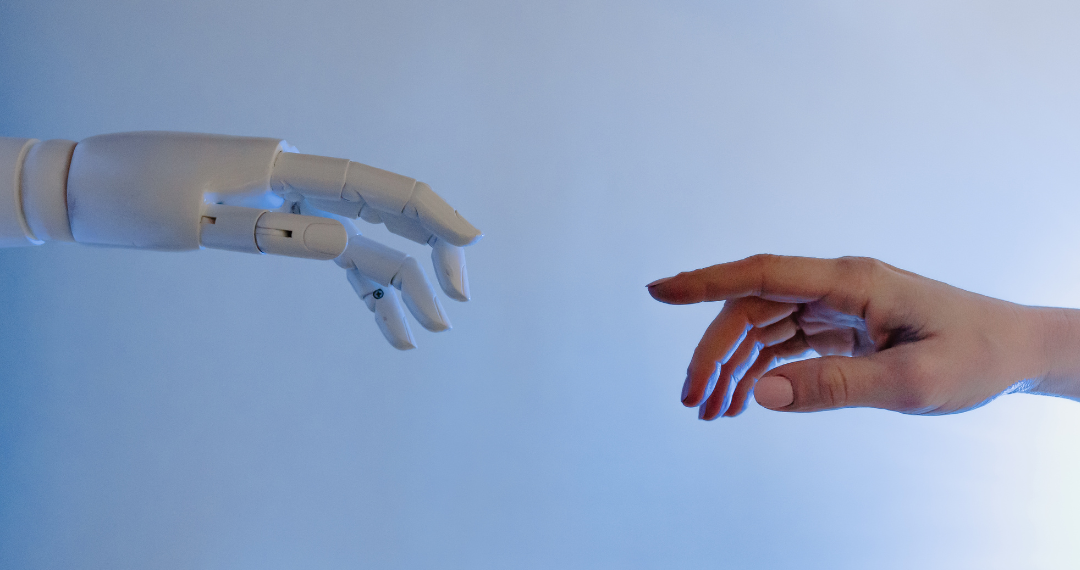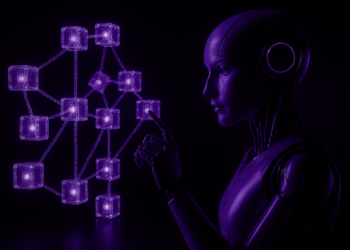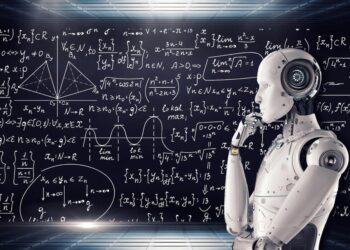As artificial intelligence continues to permeate industries ranging from finance to healthcare, the debate over when to rely on AI and when human judgement is essential grows more complex. While AI excels at analysing vast datasets and identifying patterns, it lacks critical elements like ethical discernment, adaptability, and emotional intelligence. This article explores how we can strike the right balance between leveraging AI’s capabilities and maintaining human oversight to ensure ethical, informed decisions.
Meeting about to start? You can also listen to the audio above, an AI-generated podcast episode summarising this article.
1. What are the key differences between human and artificial intelligence?
The Strength of AI: Data-Crunching Power
AI’s greatest strength lies in its ability to process vast amounts of data with unparalleled speed and accuracy. For example, in the medical field, it is already being used to identify patterns in diagnostic imaging and patient records that would be difficult for humans to detect in real-time. Similarly, predictive analytics in education use AI to flag at-risk students, allowing teachers to intervene early based on data points such as attendance and grades.
In scenarios where large-scale pattern recognition is needed, such as fraud detection in financial transactions, AI’s efficiency makes it indispensable. AI systems can sift through millions of transactions to spot suspicious activities within seconds, far outpacing human capabilities. However, while AI can offer recommendations and insights, it often lacks the context and deeper understanding that human decision-makers bring to the table.
Why Human Judgement is Still Critical
Despite AI’s capabilities, there are areas where human judgement remains indispensable. Humans possess a capacity for nuanced decision-making, which AI simply cannot replicate. Take, for example, customer service. While a chatbot might provide a quick, generic response to a complaint, a human can detect subtle emotional cues and respond with empathy and tailored solutions.
Moreover, ethical decision-making requires moral reasoning, a domain where AI struggles. In legal contexts, AI algorithms trained on historical data have been shown to reinforce existing societal biases. Humans, on the other hand, can make ethical judgments by taking broader societal implications into account. They are essential for reviewing AI’s outputs and ensuring fairness, especially in high-stakes fields like law enforcement and healthcare.
Related article: How You Can Already Use AI to Be a Better Worker
2. How can you make sure you are using AI the right way?
Lessons from Over-Reliance on AI
Case studies have revealed the risks of depending too heavily on AI without human intervention. During the COVID-19 pandemic, Amazon’s AI-driven inventory system failed to adapt to an unprecedented surge in demand for household essentials like toilet paper. Trained on pre-pandemic purchasing data, the system was unable to respond effectively to the sudden change in buying behaviour. As mentioned above, AI tools used in judicial settings have drawn criticism for perpetuating racial biases in sentencing due to flawed training datasets.
These examples underscore the importance of human oversight to mitigate unintended consequences and ensure ethical decision-making.
Striking the Right Balance
The key to leveraging AI’s strengths while avoiding its pitfalls lies in the collaboration between AI systems and human experts. AI can handle large-scale, repetitive tasks, freeing humans to focus on more strategic, complex decision-making. For instance, in healthcare, AI can analyse patient data to identify likely diagnoses, but doctors must make the final call combining data-driven insights with their own clinical experience.
Additionally, human oversight is essential for ethical AI governance. By establishing ethical review boards and conducting regular audits, organisations can ensure that AI systems operate transparently and align with societal values. This collaborative approach allows organisations to harness AI’s capabilities while ensuring that humans remain the ultimate decision-makers, especially in ethically charged or complex scenarios.
At Wemanity, we have developed an AI Transformation approach that enables organisations to fully harness the ever-evolving power of AI, while keeping humans as protagonists. See this page for more information on how we make that possible.
The Role of Emotional Intelligence and Adaptability
While AI excels at following algorithms, it cannot yet match the emotional intelligence and adaptability that humans bring to decision-making. For example, in conflict resolution, AI may suggest standard solutions based on patterns, but a human mediator can sense emotional nuances and adjust their approach to accommodate the feelings and intrinsic needs of the parties involved. This human flexibility is essential in situations where rules cannot account for every variable, and where empathy or intuition is needed to reach the best outcome.
3. Looking to the Future: a Balanced Approach
As AI continues to evolve, the balance between human judgement and AI-driven decision-making will shift. In the near future, advancements in explainable AI (XAI) may improve AI’s ability to justify its decisions, making it easier for humans to oversee and correct errors. However, AI is unlikely to replace human judgement entirely. The best outcomes will likely come from systems where AI and human expertise complement each other, with AI handling data analysis and humans making context-sensitive, ethical decisions.
Related Article: Building an AI-Ready Culture
In Conclusion
AI’s power lies in its ability to process data rapidly and identify patterns, but human judgement remains crucial for ethical, contextual, and emotionally intelligent decision-making. By striking the right balance between these two forces, we can build a future where AI serves as a tool to enhance, rather than replace, human expertise.












